Doing Business in Saudi Arabia is the Easiest According to Zamil
Abdul Rahman Al-Zamil, Chairman of Zamil Group
Without any hesitation I can tell you that doing business in Saudi Arabia is the easiest of all of these countries. Easy business doesn’t mean only government procedures.
Interview with Abdul Rahman Al-Zamil, Chairman of Zamil Group
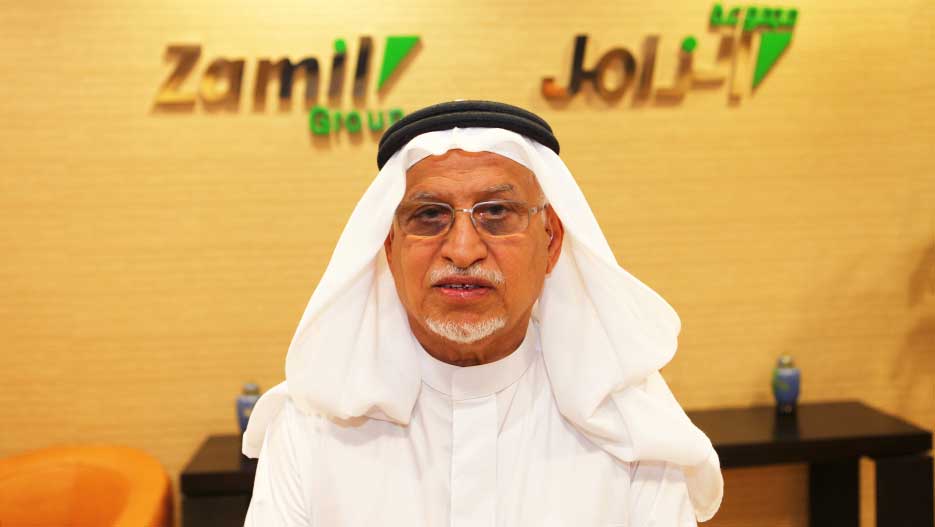
Saudi Arabia is ranked as one of the top players in the world in the 26th position in the ease of doing business compiled by the World Bank. The UAE was placed at 23rd and Kuwait at 104th. In your opinion, how easy is it to do business in Saudi Arabia from your personal experience and what are the difficulties Saudi Arabia should overcome in order to increase the ease of doing business?
My answer would be based on hard facts and real experience. We are investors in Vietnam, India, UAE, Egypt and Italy in the same industries that we have been successful within Saudi Arabia. As a result of our success in Saudi Arabia and to protect our export markets worldwide, we had to go and invest locally there. Based on that, without any hesitation I can tell you that doing business in Saudi Arabia is the easiest of all of these countries.
Based on that, without any hesitation I can tell you that doing business in Saudi Arabia is the easiest of all of these countries.
Easy business doesn’t mean only government procedures. It’s really the facilities available. We are industrialists and this is hard work. It’s easy to represent a company; it’s easy to own a bank share; it’s even easy to deal with land speculation. But to be an industrialist in a 100% open market where everybody competes with you worldwide isn’t easy. The Saudi market is open; we have only 5% customs duties on 50% of our products. The other 50% has zero duty – food, medical and others. So for an industrialist in Saudi Arabia to produce air conditioners like us or steel or aluminum or something like that, I can assure you its tough. You have the Chinese dumping, you have Europeans, and you have everybody competing with you with their major brand names.
But really the way we look at easiness is when we see the facilities provided by our government including industrial areas at a competitive price and excellent gas prices. The government makes money and I don’t care. They claim they don’t but I know they make money off us buying gas. That’s why we came number three worldwide amongst petrochemical producers. When you look at human resources, even though we are recruiting a lot of Saudis in our corporations, at least I have the freedom to easily recruit any expatriates I want from anywhere in the world. There are no restrictions like in Europe and other countries. If I need experts in technology, I recruit them, as long as I meet the requirements of our program of employing Saudis which is fair enough.
For financing, government financing is unbelievable here. We all started from nothing – me and my 11 brothers. When we finished school, most of us in the U.S., in the early 70’s we had no money except the little that my father left with us. To get into business was not easy. Thanks to the 1973 war that took place in Egypt, our King Faisal, God bless his soul, turned off oil. What happened? Oil prices went from $3 to $16. The first thing our king asked himself was “What do we do with all that money and how can we take it down to the people?” Thanks God at that meeting there was not a single international advisor. If an international advisor was there, he would have said “Your Majesty, form a sovereign fund. Get all the money there. Take it outside and invest it for future generations.” As if all the present generation was living in prosperity. At that time, all of us were poor. A royal could not even travel to Lebanon at that time.
As a result of King Faisal’s decision to keep all the money at home, he established sovereign funds locally: one for industry, one for real estate, one for agriculture, and one for this and that. Building hospitals by the private sector had a fund, and building real estate had a fund – you name it. We were the first to apply for this industrial fund to establish our first plant making air conditioners. Now at that time the fund had 125 million dollars capital. That’s total capital. We were the first one to think of doing an industrial business and we were given that money. At that time, the whole plant was started with about 1.5 or 2 million dollars.
What happened was that we were the first to be given approximately 1 million dollars and we established ourselves. Ten million, eleven million, then another factory, and then a third factory until now when we have so many of them in so many sectors, all thanks to God and to this generous support.
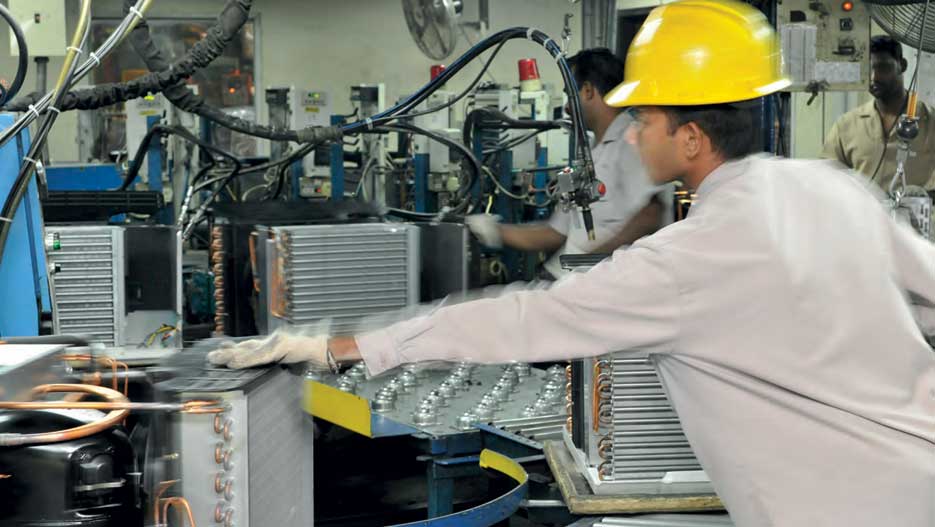
Now we are only one of 6,000 industrialists that benefitted from this program. Most of the programs that you will meet all started with 1, 2 or 3 million dollars. All of them! I have their names and I have their history because I was on the board of that industrial fund when I was appointed as the Deputy Minister of Commerce later in the 80’s. What I am saying is that this is really the reason why doing business here is easy.
A third reason to me is our accessibility to our ministers, our deputy ministers, and our king. It’s so easy to send your complaint and to follow up your complaint – you’ll get an answer. Most of the elite industrialists were either government officials or parliament members so they have direct interaction and there is accessibility. Through our Chambers of Commerce now, we really play the role of a lobbyist – lobbyist for business, society, the poor, the middle class and the rich – following up our issues with the ministers and others. That’s the reason for the ease of business.
Many times when we discuss as businessmen or lecturers worldwide or even at home, you would find somebody standing up to say that yes, it’s easy to do business here because you have money and money comes easy because of oil. Well my question is why has Saudi Arabia done better than all other oil-producing countries in the world? It’s the reason. Thinking local and being generous to support local businesses. Even my government has proven to them that with whatever they do in their loan. My government has loaned private business in the last years close to 250 billion dollars. Thanks God they got it all back with good interest. It’s better than whatever interest they make outside.
What I’m saying that is the reason why doing business is easier in Saudi Arabia. I’m not saying you don’t make an effort. You have to do that. There are obstacles everywhere. What I think is an obstacle might not be an obstacle in the mind of the decision-maker. All Saudis will complain about Saudization – employing Saudis. They need training, etc. To me it’s not an obstacle. To me it is the access to society, to help society, to work with society. Without them, you will be a stranger to that society. It all depends on how you look at it and what problems you want. Definitely, doing business in Saudi Arabia to me is the easiest.
You said in a certain book that Saudization is insurance for the country but businessmen are selfish and want to look for low-cost foreign workers. “Without jobs, Saudis will wreck our nation.”
I can confirm that totally. That is why more Saudis are employed now. We are the country with the least unemployment in the Gulf and in the world with almost 6% in general.
But there is a lot of unemployment with the young Saudis, isn’t there?
It is 6%. I am talking about the males. With the females, it’s a very special case. There are up to 25% that are unemployed. But look, since we started the new rules by the new Minister of Labor where he is trying now to really restrict the employment of foreign women in shops because ladies can’t do that. The number has jumped from 45,000 six or seven years ago to now 450,000 women working in the private sector. In our air conditioning plant we have a full-fledged production line with women that produce all the components for the air conditioners. That goes to the male line through conveyors. We have them in the steel plants for drawings and engineering. They are in an excellent environment where they can feel they are independent. Female unemployment will take some time to reach that 6% but I can assure you we will reach that. Our problem is not in the main cities but in the villages where it is more conservative. Opportunities there are very limited. Within the male employment, I think it is at 6%.
The number has jumped from 45,000 six or seven years ago to now 450,000 women working in the private sector. In our air conditioning plant we have a full-fledged production line with women that produce all the components for the air conditioners.
What is the outlook for the economy and especially for the diversification efforts?
Everybody talks about how private sector contribution is around 52%, not in terms of income. If you compare it by GDP, oil represents 85% in Saudi Arabia. The productivity of the private sector has continued to increase but unfortunately for the statistics and unfortunately for the economy, oil prices have increased. So whatever you do in the private sector, if you compare it to the price of $80 today, will be maybe around 70% oil and 30% private sector. But if oil jumped tomorrow to $150, then we might go down to 7%. So productivity is hard to compare by looking at the numbers.
Today, the total productivity of all industrial and agricultural and other business, in other words the total sales of the private sector, in the local economy is gross 200 billion dollars. Our non-oil exports reached 60 billion dollars in 2013. This is an average increase of 10 to 15%. This means we have 50% locally-supplied material for the market and 50% imported. I’m not talking about services or other activities like banking. What I’m saying is that the private sector in Saudi Arabia is extremely active and expanding in all sectors.
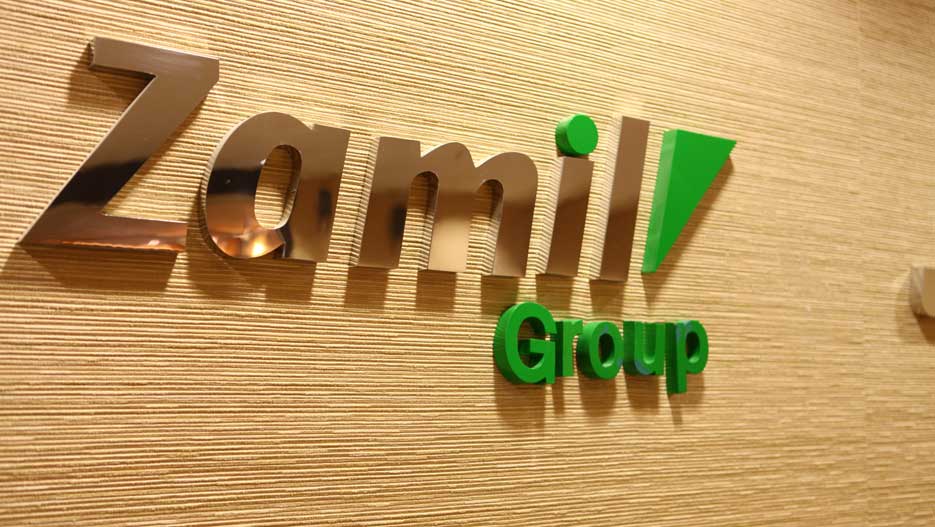
As for the diversification, do you see it continuing or do you see failed policies?
For diversification, definitely it takes time. Every country uses its comparative advantage to be able to survive in this world. Canada depends totally on water because it’s cheap. It supplies everybody. China depends totally on their manpower; that’s their advantage. Saudi Arabia – God gave it oil and gas. That is the base for development. Now we should diversify. If you look, we started early as oil producing and exporting all oil out. Then we moved into oil refining which is a diversification because it’s a process and production – it is efforts. Then we moved to gas and chemical. Processing of gas is a diversification because it takes capital investment, labor, work and other things. Then we moved into petrochemical which is now the leading industrial projects with tremendous employment opportunities for Saudis. 85% of our entire petrochemical and downstream workforce is Saudis.
Now we have moved into the minerals. Minerals will be another jewel in two or three years from now. Aluminum is another one. Diversification means other services, like today tourism is active, trading is active, and export is active. In 40 years from now with our program of connecting the whole country with our region and with GCC available by railroad, you will see that Saudi Arabia definitely has almost monopoly on importing all materials from the West and America to all GCC because all of them will come with ships and will unload either in Yanbu or in King Abdullah City Rabigh or in Jeddah Port—these are the three major ports. They will handle hundreds of thousands of containers a year. It will be easier for Kuwait to import from Saudi Arabia. Its 12 hours by train from Jeddah to Kuwait instead of at least 13 days to get to Kuwait at the cost of $75,000 a day on that ship.
It will be easier for Kuwait to import from Saudi Arabia. Its 12 hours by train from Jeddah to Kuwait instead of at least 13 days to get to Kuwait at the cost of $75,000 a day on that ship.
It is the same thing for Iraq. Prior to the war in Iraq, Iraq under Saddam was depending on Yanbu; all their trucks were moving from there because they don’t go through the Gulf. Bahrain eastern province and Qatar – I would dare to say that even transferring our container through those railroad connections to Dubai and Abu Dhabi would be cheaper than going to Dubai. This is my expectation and that calls for tremendous business. Look at Dubai now living on trading – export and re-export. I think that trading activities will play the same role in the future.
So diversification is our objective but we have to work hard on it in different ways. We are going that route though. If anybody tells you that our economy will not depend totally on oil is dreaming because oil will always be our mover. I’m not really of the opinion of people who are expecting oil to go down. Oil, my friend, is a precious material. It will always go up. Demand is tremendous. I don’t care about all the predictions. Since I was at the university studying oil economics, they were telling us oil will go down. Until today, we have seen nothing but it going to 120.
But the long-term future of oil is probably numbered as humanity evolves. We used horses, then we used coal and then we used oil. It’s an evolution. One day oil will not be economically wise to be used.
Why should we produce 10 million barrels a day? To produce green dollars and put it in deposits or bonds? If we reduce it to 2 million barrels, the price will go to 130. People talk about the international economy. Our government is worried about that. Our ministers look at things differently than I am. But I’m a businessman and I calculate the numbers. What I’m saying is that oil will be our base and will continue to be our base. It doesn’t mean that we should really depend on it. No, we should diversify and we should work hard.
Our program of training people is a type of diversification. Our scholarship of 130,000 young Saudis in Europe and America and Asia is a diversification because most of them are going to be a different type of workforce with different productivities. A lot of them will be working overseas maybe. So diversification is a must, I agree with that. Saudi Arabia must be a healthcare capital and a medical capital. We have the capability to attract the best to be here and provide support to the region. So diversification is our objective for sure but the numbers should not be used to reflect the actual work of diversification.
Let’s talk about the Zamil Group as an example as it’s one of the few successful examples, along with SABIC and Aramco. It’s a truly international enterprise. It’s an enterprise that was built at home and succeeded on the global scale.
In general, the Zamil philosophy is whatever we produce at home, we must export 35%.
Tell us about your strategy for Zamil Group and about the homegrown entrepreneurship.
From the beginning, our family and our Zamil partners and all our groups really decided to go into the most competitive product that we could produce here. We don’t assume any protective measures in the market, even if they exist. So we do our studies based on our capability to produce a product that can compete in our market in an open economy, with the disadvantage that we are new and all the others are world-known brands and with the disadvantage of being new and all the others are recommended by solid foreign consultants that support their own product.
30,000 Saudis have passed through Zamil in the last 30 years. They graduated and are working at better jobs. We still have 4,000 or 5,000.
When we applied to the Saudi Industrial Fund, it is a very tough organization. They really scrutinize everything and they finance only the feasible businesses. Our strategy is to be industrialists, to produce at home, and then expand overseas to protect our market. When we became the number one exporter of steel into Egypt, Egypt implemented some new rules, and so immediately we moved and put plants in Egypt to produce and export from Egypt to Africa and southern Europe. When we were the number one exporter of steel to India, again India started to put procedures and barriers into place, and we moved into India because we think that whatever we do in India or Vietnam, at the end of the day the profit is coming to us. All of these investments overseas have helped our local production to expand and enlarge.
The second strategy we have worked on from day one, before the government even asked about it, was recruiting Saudis in our plants. We used to really recruit Saudis that dropped out from high school or elementary school, picked them up into the plants, trained them for four hours a day and had them work on the lines for four hours a day. So they were trained while they were working. They were working while they were training. The reason is this: we wanted them to feel they were contributing to the plant. So Saudization and depending on Saudis was a major objective in our family, not because they are the best but because social responsibility was big in our mind. We see our relatives. In Saudi Arabia we don’t have a class society. There may be a rich Zamil because he is a businessman but there are so many poor Zamils looking for jobs. It’s a great contribution to bring all of your tribe or your friends or your town. Everybody comes; they want you to employ their boys. To us that was a major thing and we continue to do that. 30,000 Saudis have passed through Zamil in the last 30 years. They graduated and are working at better jobs. We still have 4,000 or 5,000.
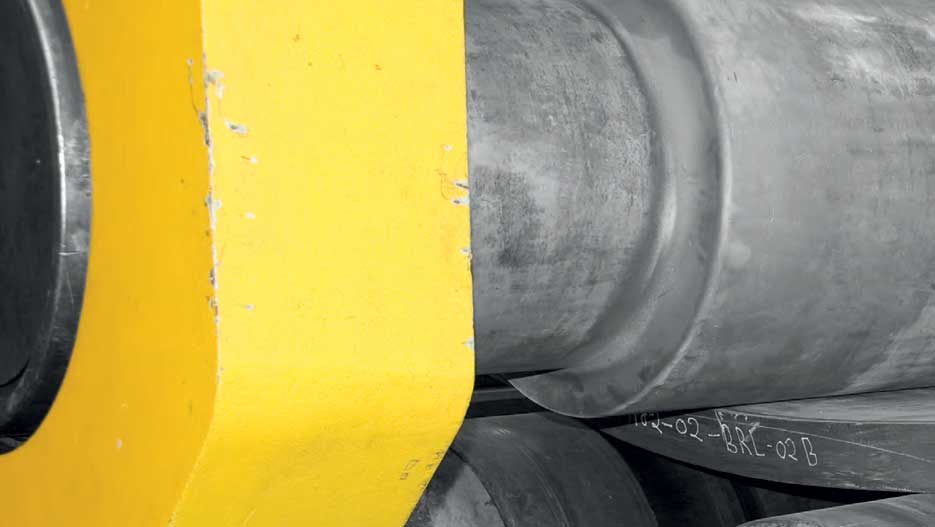
The third thing that we really concentrate on is that we really try to transfer the family business into a real corporate business, into a stock holding company – for transparency and central control. We own a majority but being a publicly-owned company, it really puts you at ease as an owner. First of all, liability is the last thing to worry about. Second, many eyes are on you – market, stock market, newspapers, analyst – so you know that your management has to behave and do the right job. Now we have taken all our building material into the Zamil Industrial Development Company with sales of almost 6 to 7 billion Saudi Riyals. It’s profitable and on the stock market and we have thousands of people – partners. Sure the majority is with Zamil as a family or individuals but the management is totally independent. There are two family members on the board but there are seven or eight others.
It was the same thing when we developed our petrochemical activities; Saudi International Petrochemical. We started it as closed stock and now it’s the leading petrochemical in the sector. SAHARA Petrochemical and Chemanol are the others. So we believe that if its family business controlled or Family Corporation doesn’t mean that you have to own everything 100%. I have studied the case of Siemens. Siemens in Germany is considered a family corporation because the Siemens family owns 2%. They are the ones appointing the most important people on the board and they have a great influence on the appointment of management. This is another thing.
The fourth thing we have on our mind all the time is paying attention to our new generation. Today we are 11 brothers and we probably have 30 in the new generation. We want them to be leaders. We really pay attention to their training. When they are employed in the company, they are employed like anybody. They can work outside if they want but we try to keep them in the family business. We are tough on them and we force them to be trained overseas every year. We selected them based on an excellent consultant evaluation to look at each of them. If he’s not good at his job, maybe he would like another job. We want good leaders. Of all the 12 brothers, one passed away, and two or three others are at a stage where they have to relax. Today we have leaders from the second generation that are leading major sectors in the group.
Today we have leaders from the second generation that are leading major sectors in the group.
Another thing that we really care about is integrity. This is the most important reason for our success. Honesty. Never do something wrong. Never trade in anything that our religion doesn’t allow us, like alcohol, armaments and other things. These things I have and I will give to you. It’s all in writing and told to our employees and our leaders. Everybody in Zamil has to abide by this. You find that it’s hard in a market, and all the world in fact, that is characterized by a lot of difficulties in the way people are doing business. But I’ve never seen a successful businessman that has succeeded through another way. To us, integrity and honesty in business is the most important factor that we look after.
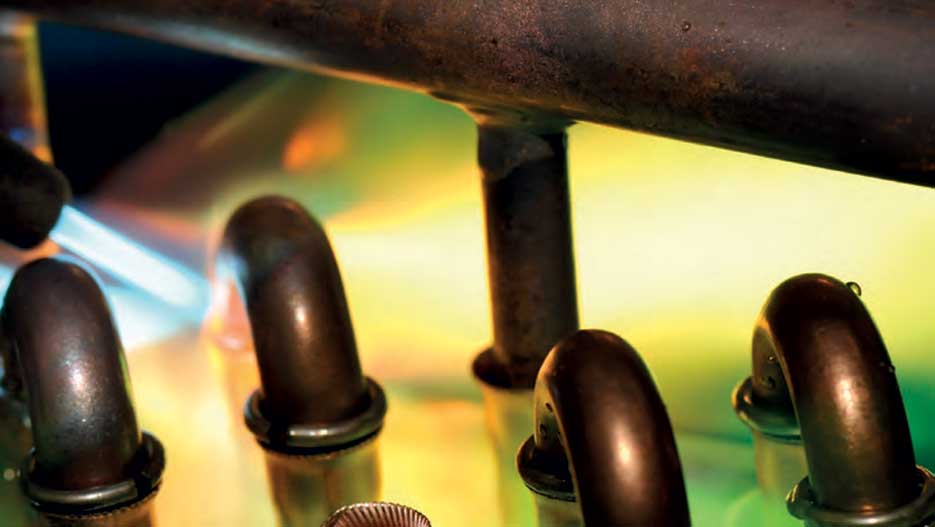
Saudi Arabia is now focusing its efforts on industrialization. However, at the same time, we see China focusing on industrialization. There are many aluminum smelters being built all around the world. China’s steel industry is strong as they are churning out so much steel they are dumping prices. Saudi industry is finding itself in a very globally-competitive and difficult market where we see government interventions and dodgy practices. You yourself are in the middle of all that. How difficult is it to compete?
Business has never been easy. The market changes every day and circumstances and factors change every day. I think in the main line that we are working on, and that is the petrochemicals and others, I don’t think really for the foreseeable future that anybody is going to compete with Saudi. Our gas price, even though people talk about it, I don’t think it will be an issue to be touched. If it increases, it will be very little increase. That doesn’t matter.
I’m not worried about the major line of this sector. In our building materials, definitely there are difficulties but show me anybody who isn’t having difficulties. Even China is in trouble now in many sectors. Whoever tells you that he is making money in China, talking about foreign investors, please have them call me, other than only in the automobile industry. Doing business in China is not easy either. They will never let you have a margin.
What I’m saying is that it is not only the cost of production that counts, but the accessibility of the market and the closeness of the market. If I’m not able to produce a steel building in Saudi for my neighbor at a competitive price, I better close it but I was not forced to and I’ve been expanding. I build ships in Saudi and sure, sometimes I bid and I win and sometimes the Chinese bid and they win. It all depends on who has capacity that he can utilize at that particular time at what price. But we are expanding and building. We have two yards to build ships in the Eastern province, we have a third on the Red Sea, and we are building a major shipyard now in Yanbu, but that will depend not only on manufacturing and building ships. That will depend basically on the maintenance of ships. Maintenance will make money to support the other services.
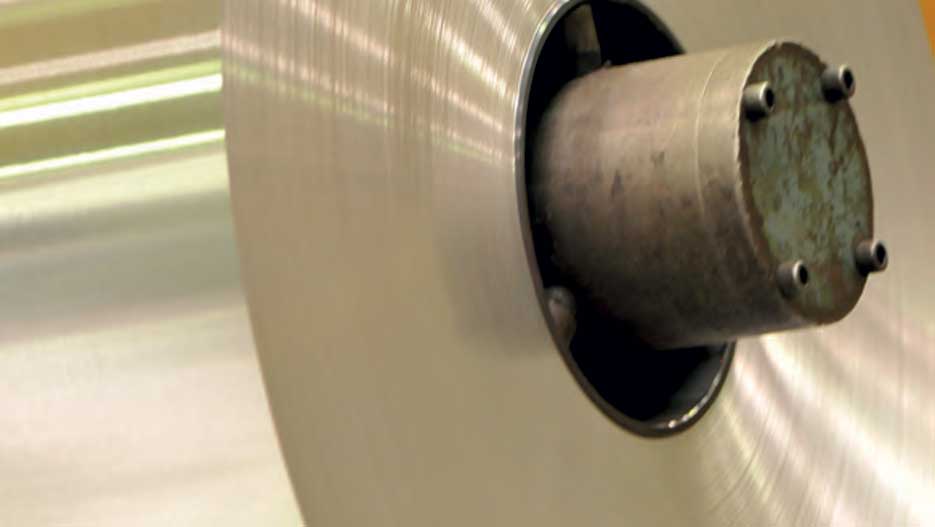
Let’s talk about food production. It is really easy to compete in food production here because food needs a lot of restrictions – timing, time of production, consumption, transportation and so forth. So Saudi food production will boom. That’s another area of growth. GCC imports 70 billion dollars worth of food and we import 90% of that. If I can, along with my partners in Saudi, produce 15 billion dollars worth of food production that will be a very successful business here. Look at our food corporations here – Al Marai Foods and others – they are very successful.
What I’m saying is that every market will have its own advantages and disadvantages. In air conditioners, when we started we were selling room A/C for $700. Prices went down to $300 but we were still successful. Now Saudi Arabia learned the hard way; they said they will not accept any dumped A/C. To conserve electricity, we need to have quality equipment. The same product that goes to Europe or America must come here. So what happened? Only locals were able to produce because exporters were depending on the cheap units and consumers don’t care. They just wanted A/C and to pay the bill later. What I’m saying is that this market, particularly Saudi Arabia, will adapt itself for specifications and many other things will give a businessman here an opportunity to breath and survive. It doesn’t mean that we’ll be forever protected. In Saudi Arabia, we never had customs duties. We don’t even have VAT which everybody uses. We are living in a very competitive world and that is why we are successful and that is why we are able to export.
Today, insulation material is unbelievable. We are producing and exporting it. You name it – plastics. Let me tell you a story. Many countries started creating some anti-dumping barriers. The last one was Turkey to protect their own local businesses. They produce polypropylene and other basic plastics. Downstream plastic, like containers and components for cars and air conditioners, expanded when they used anti-dumping policies against us. Our export was not affected but the cost of production – because our price was higher to supply basic raw material – became higher. They were not able to compete with us here in our market. They started joining us. They said it’s cheaper for them to produce in Saudi to cover their whole market in the Arab world and in Turkey.
These interventions really ruin the dynamism of the economy itself. The same thing happened in India but immediately they withdrew. They discovered they were affecting 600,000 producers downstream just to protect one major producer that has great influence in that parliament. They decided not to.
We never used our leverage to say to everybody that I will raise my customs duty on you. We used logic and Thanks God so far, so good. That’s why we don’t have automobile car factories here.
There’s a factory in Jeddah.
The Mercedes factory in Jeddah is small but big plants like Toyota producing thousands of cars are not present in Saudi. We import billions of them, like GM. Both have looked at the market during our time of set programs but they said we will come if you give us 25% protection, not only 12% like it used to be before, both GM and Toyota for small trucks. Our king said no. These are the camels of the Bedouins today – the small cars. Our philosophy is against any protection in the market. That’s why we don’t have the cars. Eventually they will start coming. As you mentioned, there is Mercedes in Jeddah and Isuzu in the Eastern province making big trucks. They will realize that it’s better for them to be local.
You have a very optimistic view of the market although many critics would probably disagree with you. They would probably maintain that the way forward for Saudi is services – waiters and tourism.
Yes, but that’s basic. In every society you need that but you cannot have all the Saudis being waiters. Optimism is the difference between an investor and a non-investor. That’s the reason we, like many others who are positive, are enjoying the monopoly of getting to the market. Getting into new industries and new ideas while everyone else is complaining. Life is not easy; you have to fight. In Saudi Arabia, you have to fight.